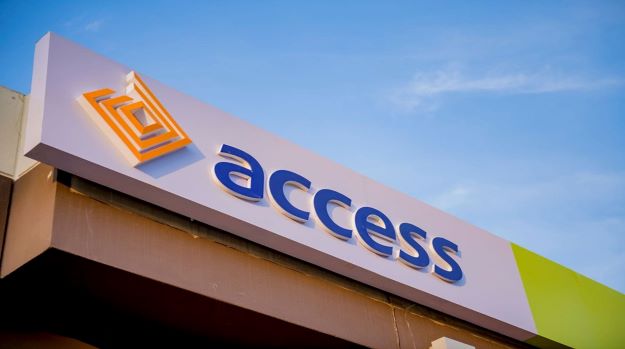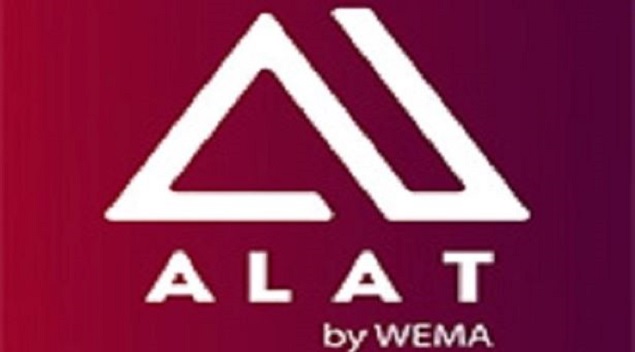E-Financial
Access Bank Partners Asolar to Power Up Nigerian SMEs, Rural Communities

Access Bank Plc, has partnered with Asolar to launch a green energy solution to tackle power supply challenges faced by small and medium enterprises and rural communities across the country.

The products, which included solar-powered TV sets, Air Conditioners, and PoS machines, among many others, were launched in Abuja recently.
In a statement, Victor Etuokwu, the Access Bank Deputy Managing Director, noted the inconsistent power supply has become a major obstacle to businesses and livelihoods in the country and
Represented by the bank’s Director of Regional Services, Neka Adogu, Mr Etuokwu said the initiative was aimed at promoting financial inclusion in rural areas.
He said: “This inconsistent power supply poses a substantial challenge for small and medium enterprises [SMEs] as well as initiatives aimed at promoting financial inclusion in rural areas, which is considered a yardstick for economic growth in Nigeria.
“Currently, in Nigeria, owners of SMEs and people living in rural communities with no or little power supply, spend huge sums in procuring generating sets, purchasing fuel, and the maintenance of generators to operate their business successfully.”
In his remarks, Hakeem Shagaya, the Chief Executive Officer of Asolar, said the company was committed to ensuring every citizen has access to reliable and sustainable energy across the country.
While appreciating the management of the bank for the collaboration, Mr Shagaya noted that the initiative was in line with the sustainable development goals on clean and renewable energy.
Speaking, Chizoba Iheme, Group Head, Financial Inclusion, Access Bank Plc, disclosed that the bank has over 300,000 Access agents across the country to facilitate the distribution across Nigeria.
E-Financial
Wema Bank Upgrades ALAT Banking App

Wema Bank Plc has launched the upgraded version of its flagship digital banking platform, ALAT by Wema. Designed as the next phase in digital banking, the upgraded version of ALAT delivers a smarter, faster, and more intuitive experience, reinforcing Wema Bank’s leadership in technology-driven financial services.

Tagged ALAT: The Evolution, the upgraded version represents a significant advancement in how customers interact with their bank.
It enables seamless banking through intelligent features such as voice banking (called SAW), which allows customers to carry out banking activities using natural voice commands, reducing friction and improving accessibility.
It also introduces Tap and Pay for quick, secure, and convenient contactless transactions, alongside uptime prediction that enhances transparency, reliability, and confidence around service availability.
Together, these innovations are designed to simplify everyday banking while anticipating customer needs in real time, reinforcing Wema Bank’s commitment to trust, efficiency, and customer-centric digital experiences.
While announcing the upgraded version of the ALAT Banking app, Moruf Oseni, Managing Director and Chief Executive Officer of Wema Bank, said, “ALAT: The Evolution is more than an upgrade. It is a clear demonstration of our commitment to redefining digital banking in Africa.
“By understanding the future of banking and listening closely to our customers, we have upgraded ALAT by Wema to a digital banking platform that is smart, intelligent and dependable. This evolution reinforces our promise to deliver innovation that genuinely enhances how people live, work, and transact everyday.”
He added that migrating to the upgraded app is seamless. “Existing customers can simply visit the Google Play Store or Apple App Store to update their existing ALAT app and sign-in with their existing login details (All their account information and transaction history remain intact on their profile and they will also gain access to new features that make banking faster, more intuitive, and more reliable).
For new customers, all they have to do is visit the Google Play Store or Apple App Store to download ALAT by Wema app and click the Get Started icon to onboard seamlessly.
Speaking on the technology in the upgraded ALAT by Wema, Olusegun Adeniyi, Chief Digital Officer at Wema Bank, explained, “With ALAT: The Evolution, we set out to enhance not just functionality but the overall banking experience.
“By integrating voice banking, contactless payments, and predictive reliability, we are delivering a platform that is built on powerful technology and responds intelligently to customer needs. This upgrade reflects our long-term digital vision to create a digital bank that is adaptive, intuitive, and consistently available.”
Built on speed, intelligence, and user-centric design, ALAT: The Evolution redefines everyday banking through intuitive features such as voice-enabled transactions, contactless payments, and predictive service reliability. Designed to anticipate customer needs in real time, the platform delivers a smarter, more seamless, and dependable digital banking experience that reflects Wema Bank’s vision for the future of finance.
With the upgraded version of ALAT, Wema Bank continues to strengthen its position as a digital-first institution, delivering innovative solutions that empower individuals and businesses to bank with confidence in an increasingly digital economy.
E-Financial
NDIC Declares Second Liquidation Dividend for Heritage Bank Depositors

Nigeria Deposit Insurance Corporation (NDIC) has declared a second liquidation dividend of ₦24.3 billion for depositors of Heritage Bank Limited (in liquidation) whose account balances exceeded the statutory insured limit of ₦5 million at the time of the bank’s closure.

Heritage Bank’s operating licence was revoked by the Central Bank of Nigeria (CBN) on June 3, 2024, after which the NDIC was appointed liquidator in line with the Banks and Other Financial Institutions Act (BOFIA) 2020 and the NDIC Act 2023.
In a statement signed by Hawwau Gambo, head of the Communication and Public Affairs Department, the Corporation said “the second liquidation dividend would be paid at a rate of 5.2 kobo per ₦1.00 on outstanding uninsured balances. This brings the total liquidation dividend paid so far to 14.4 kobo per ₦1.00.
“The NDIC has now declared a second liquidation dividend of ₦24.3 billion. This amount, derived from debt recovery, sale of physical assets, and realisation of investments, will be applied to the payment of uninsured balances for depositors with funds exceeding the ₦5 million insured limit. The second liquidation dividend is payable at a rate of 5.2 kobo per ₦1.00 on outstanding balances, in accordance with Section 72 of the NDIC Act 2023. This brings the cumulative liquidation dividend declared to date to 14.4 kobo per ₦1.00”.
The NDIC recalled that it had earlier paid a first liquidation dividend of ₦46.6 billion in April 2025, representing 9.2 kobo per ₦1.00, following the reimbursement of insured deposits of up to ₦5 million per depositor from its Deposit Insurance Fund.
According to the Corporation, the second tranche was made possible through sustained recovery of debts and continued asset disposal.
“This payment is in furtherance of our statutory responsibility to ensure that depositors of closed banks are reimbursed promptly as assets are realised,” the NDIC said.
The Corporation explained that payments would be made automatically to eligible depositors using existing records. Depositors who have already received their insured deposits and the first liquidation dividend will have their alternative bank accounts credited automatically through their Bank Verification Numbers (BVN).
However, depositors without alternative bank accounts or BVNs, as well as those who have not claimed their insured deposits or the first liquidation dividend, were advised to visit the nearest NDIC office nationwide or complete the e-claim form on the Corporation’s website for verification and processing.
The NDIC noted that liquidation dividends are paid only to depositors with balances above the insured limit and are sourced from asset sales and recoveries. Other creditors and shareholders will be considered only after all depositors have been fully reimbursed and subject to the availability of funds.
The Corporation assured the public that the ₦24.3 billion payment represents only the second liquidation dividend, adding that further payments would be made as additional assets are realised and outstanding debts recovered.
Depositors were advised to contact the NDIC Claims Resolution Department at any of its offices nationwide or through the Corporation’s official email addresses and helplines for further enquiries.
E-Financial
KPMG Identifies ‘Flaws, Inconsistencies, and Omission’ in New Tax Law

KPMG Nigeria has identified what’s described as “errors, inconsistencies, gaps and omissions” in Nigeria’s tax laws that came into force at the beginning of this year.

The professional services company warns that these issues could undermine the attainment of the tax reforms’ stated objectives if left unaddressed.
The reforms, anchored on the Nigeria Tax Act (NTA) and the Nigeria Tax Administration Act (NTAA), alongside the Nigeria Revenue Service (NRS) Establishment Act and the Joint Revenue Board (JRB) Establishment Act, are aimed at improving revenue generation, simplifying tax administration, and enhancing competitiveness.
Authorities have repeatedly described the overhaul as critical to strengthening Nigeria’s weak tax-to-GDP ratio and adapting the tax system to changing economic realities.
Capital gains, inflation, and market behaviour
One of the most far-reaching concerns relates to the computation of chargeable gains under Sections 39 and 40 of the Nigeria Tax Act, which require capital gains to be calculated as the difference between sale proceeds and the tax-written-down value of assets, without any adjustment for inflation, analysis by KPMG revealed.
This approach has attracted attention largely because of Nigeria’s inflation environment. Headline inflation has remained in double digits for eight consecutive years, averaging above 18 percent between 2022 and 2025, according to data from the National Bureau of Statistics. Over the same period, asset price movements have been heavily influenced by currency depreciation and general price increases.
Actual market behaviour shows a mixed reaction to tax policy expectations, despite a strong full‑year rally, with the NGX All‑Share Index up more than 50 percent and market capitalisation near N99.4 trillion, the equities market saw significant sell‑offs in late 2025, including a N6.5 trillion drop in market value in November amid uncertainty over the new capital gains tax rules, underscoring investor sensitivity to tax policy shifts.
In its review of the law, KPMG Nigeria noted that taxing nominal gains in a high-inflation environment could result in taxpayers being assessed on inflationary gains rather than real economic value. The firm recommended the introduction of a cost indexation allowance to adjust asset values for inflation when computing chargeable gains.
According to the analysis, such an adjustment would reduce distortions in effective tax rates while still allowing the government to generate additional revenue from genuine capital appreciation.
Indirect transfer rules and foreign investment risks
Another provision drawing scrutiny is Section 47 of the Nigeria Tax Act, which subjects gains from indirect transfers of shares or assets by non-residents to Nigerian tax where such transfers result in changes in ownership of Nigerian companies or assets located in Nigeria.
The provision is being introduced amid weak foreign investment inflows. Data from the United Nations Conference on Trade and Development shows that foreign direct investment into Nigeria remains below pre-2019 levels, reflecting broader investor caution.
While similar indirect transfer rules exist in other jurisdictions, analysts note that such regimes are typically supported by detailed guidance and clear thresholds to reduce uncertainty.
KPMG’s analysis recommended that Nigerian tax authorities issue clear administrative guidance defining the scope, thresholds, and reporting obligations associated with indirect transfers. The firm noted that clarity would reduce the risk of disputes, improve compliance, and mitigate potential negative effects on foreign investment flows.
FX deductions clash with economic realities
Section 24 of the Nigeria Tax Act limits businesses from deducting foreign-currency expenses beyond their naira equivalent at the official CBN rate.
In practice, this means a company importing goods, paying foreign software subscriptions, or settling overseas vendor invoices cannot claim as tax-deductible any amount they spent above the official exchange rate.
For many companies, this is a real problem. Access to official foreign exchange is limited, forcing businesses to pay higher rates on the parallel market. Under the law, the extra cost becomes non-deductible, effectively increasing taxable profits and raising their tax bills.
KPMG warns that while the rule aims to curb speculative foreign exchange activity, it fails to account for supply shortages. The firm recommends that deductibility should reflect the actual cost incurred, provided proper documentation, so businesses aren’t penalized for circumstances beyond their control.
VAT-linked expense disallowances
Section 21(p) of the Nigeria Tax Act disallows deductions for expenses on which value-added tax has not been charged, even where such expenses were incurred wholly for business purposes.
This intersects with Nigeria’s VAT compliance challenges. The informal sector accounts for a significant share of economic activity, and VAT compliance gaps remain wide, according to assessments by tax authorities and development institutions.
Analysts note that the provision effectively transfers part of the VAT enforcement burden to compliant taxpayers, who may be penalised for supplier non-compliance.
KPMG recommended that Section 21(p) be deleted or substantially modified, arguing that deductibility should depend solely on whether an expense was wholly, exclusively, and necessarily incurred for business purposes. The firm noted that VAT compliance should instead be enforced directly through audits and penalties on defaulting suppliers.
Non-resident taxation and compliance ambiguity
Uncertainty also surrounds the compliance obligations of non-resident companies. While Section 17 of the Nigeria Tax Act provides that withholding tax constitutes final tax for certain non-resident payments where there is no permanent establishment or significant economic presence, the Nigeria Tax Administration Act does not clearly exempt such entities from registration or filing requirements.
Nigeria has signed over a dozen double taxation treaties (DTTs), including the UK, South Africa, Canada, and France, which align with the principle that final WHT extinguishes further tax obligations in the absence of a taxable presence. Experts say harmonizing the NTA and NTAA with these treaties is critical to avoid conflicts and deter foreign investors.
KPMG recommended that the relevant provisions of the Nigeria Tax Act and the Nigeria Tax Administration Act be harmonised, with explicit exemptions for non-resident companies whose Nigerian tax obligations have been fully discharged through withholding tax. According to the firm, such alignment would reduce compliance friction and improve Nigeria’s attractiveness for cross-border transactions.
As Nigeria enacts its most comprehensive tax overhaul in decades, the path to success will depend on clarity, alignment with international best practices, and swift adoption of recommended amendments. Without these measures, businesses may face higher costs, non-residents could be discouraged from investing, and capital markets may remain volatile. For policymakers, the challenge is not just raising revenue but ensuring that the reforms strengthen competitiveness and sustainable economic growth.

 General News1 day ago
General News1 day agoMinistry of Finance Leads FG-Backed Deal to Deliver Quality Homes and Boost Agriculture in Niger State

 News1 day ago
News1 day agoSERAP Sues INEC Over Alleged ₦55.9Bn Election Funds Diversion

 Telecom1 day ago
Telecom1 day agoFG Plans to Invest $460m World Bank Loan in Fibre Infrastructure

 News1 day ago
News1 day agoAI Founders and Developers to Converge in Lagos for AI in Action 2026 conference

 E-Financial1 day ago
E-Financial1 day agoNDIC Declares Second Liquidation Dividend for Heritage Bank Depositors

 News1 day ago
News1 day agoFG Inaugurates N40Bn CCTV Control Centre for Third Mainland Bridge

 General News1 day ago
General News1 day agoTax Reforms Panel Rejects KPMG’s Critique of New Laws

 General News1 day ago
General News1 day agoIndonesia Blocks Elon Musk’s Grok Over Deepfake Concerns



























